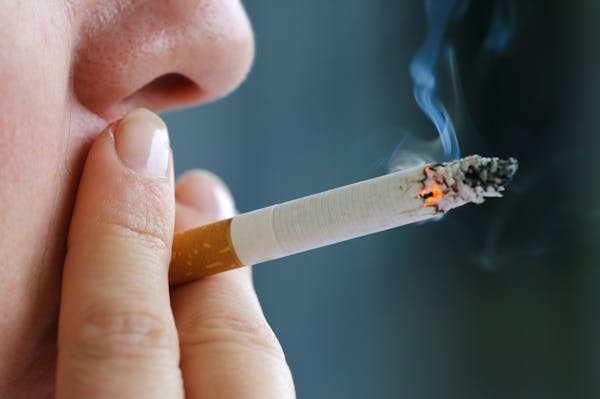I'm guessing that Reid Sagehorn is one of few Minnesotans welcoming another punishing winter storm these past few days. It's about the only event, save a good Russian Olympics scandal, that would knock his story out of the media spotlight.
Sagehorn, for the two of you who still haven't heard, is the 17-year-old captain of the Rogers High School football and basketball teams. He is accused of tweeting that, yes, he did kiss a 28-year-old physical education teacher.
The accusation was quickly dismissed as untrue, but Sagehorn was booted out of school for seven weeks.
I feel terrible for the teacher, who was put in the excruciating position of having to deny what she never did in the first place. Accusations of sexual impropriety between a teacher and student are serious and potentially career-ending.
But I feel for Sagehorn, too, and not for the reasons being tossed out in media reports.
I'm sure that he's a nice kid from a nice family (although I bristle at the implication that we'd have no trouble with the outcome had he been a "bad" kid from a "bad" family. What do you think … three years of hard labor in the gulag for that kid?)
Sagehorn is clearly a school leader with a promising future, a future now possibly compromised by one dumb tweet.
From the cheap seats, I'm guessing that Sagehorn was simply annoyed by some insecure students who felt empowered by their childish and anonymous postings on the "Rogers Confessions" Web page. Had he said, "Yeah, I did it," in the locker room or school hallway, it would still be dumb, but it would not be front-page news.
But in the new world order of über-connectivity, self-absorbed selfies, and kids sleeping with their iPhones, no dumb comment goes unpunished — or unrecorded.
The irony to me is that Sagehorn was the only person who actually did something brave. He identified himself. He attached himself to his words.
We can use this story to, once again, talk with our kids about how cautious they need to be on social networks. We can tell them, once again, that nothing ever really disappears.
And then we can watch them plug their ears, roll their eyes and say la-la-la, because they know all this stuff and they're probably going to do it anyway.
There's a more productive conversation to have and few of us, including myself, have had it. It's about anonymity. We've simply lost our way, and all respect, when it comes to the concept.
I don't blame the kids. I blame us. To paraphrase that well-worn schoolyard accusation: We did it first.
The Internet allowed us to post anonymous comments, which dragged civil discourse into the toilet before better filters kicked in.
But it set a tone. And now we're raising a generation of kids who are largely fearful of publicly sharing their opinions, of valuing their own voice.
There are many examples that warrant anonymity, noted Roy Peter Clark, senior scholar at the Poynter Institute, a journalism think tank in St. Petersburg, Fla.
"One of the values of anonymity is to secure your identity against tyrants and other forces who might be antagonistic toward you," Clark said. "The history of pamphleteering is actually an ancient and noble foundation of this democracy."
In addition, anonymity is needed to protect the vulnerable, such as victims of rape, or undocumented immigrants wishing to tell their stories.
"We admire people who come forward and attach their names, but we also recognize that some people's stories need to be heard for the public's good, even if we can't name them," Clark said.
Unfortunately, none of that sounds remotely like what's going on at Rogers High School and every other high school in the state.
That's the "whole other side," as he calls it, and it doesn't look noble at all. On this side, anonymity "brings out the cowards," Clark said. "It brings out the bullies. It brings out the naive, who may not be able to see the consequences of their words.
"If something bad happens, they may feel protected from any responsibility."
This is why it's so important that the anonymous posters in the Rogers case also get identified and punished. But none of them too harshly. They're still kids.
Sagehorn's seven-week suspension is far too severe for one sarcastic comment. Plus, I'd be amazed if he hasn't already learned his lesson. Now those anonymous kids need to be asked a few questions:
"Would you say these things, would you make these accusations, if your name were attached?" We already know the answer.
And, also, "Why don't you feel good enough about yourself to tie your opinions and ideas to your name?" It's a brave, and noble thing to do, we need to tell them.
And then we need to ask ourselves the same.
gail.rosenblum@startribune.com
612-673-7350 • @grosenblum

Who inspires you?



